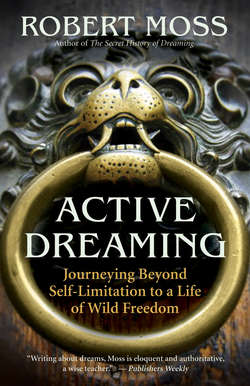Читать книгу Active Dreaming - Robert Moss A. - Страница 19
На сайте Литреса книга снята с продажи.
How to Break a Dream Drought
ОглавлениеThose who lose the Dreaming are lost.
— AUSTRALIAN ABORIGINAL SAYING
Too many of us have lost touch with our dreams. It’s no exaggeration to state that our society is suffering a severe and protracted dream drought.
From the viewpoint of many spiritual traditions, this is a very serious condition. It’s through dreams, say the Navajo, that humans keep in touch with the spirit realm. If you have lost your dreams, say the Iroquois, you’ve lost part of your soul. “It is an age-old fact,” declared the great psychologist C. G. Jung in his last major essay, “that God speaks chiefly through dreams and visions.”1
There are three main reasons for the dream drought in many modern lives:
1. Bad habits. The rhythms and routines of a typical urban life simply don’t support dream recall. Too often we are jolted awake by alarm clocks — or bedmates, or kids who need to get to school — and stumble out into the world, fueled with caffeine, to try to get through our rounds of deadlines and obligations. In many situations, we have nothing that supports and rewards the habit of taking time to collect our dreams. Most of us also lack a practice for creating a safe space where we can share our dreams, receive helpful feedback, and be supported in devising creative action to embody the guidance and energy of our dreams. If we don’t do something with our dreams, we will not dream well.
2. Fear and regret. We run away from our dreams because we think they might be telling us something we don’t want to hear — about the dark side of ourselves, or trouble or illness ahead. We slam the door and say, “It’s only a dream.” This is a poor strategy. Issues we leave unresolved in the night are likely to come round and bite us in the rear end in the everyday world.
Alternatively, we dream of something wonderful — of joy and delight with Mr. or Ms. Right, of a dream home, a dream job, a world of peace and beauty. But when we wake up, we tell ourselves there’s no one like Mr. Right in our life, or we don’t have the looks or the money or the ability to manifest what we enjoyed in our dreams. So again we kiss off the dreams, telling ourselves they are “only” dreams. Again, this is a foolish reflex. If we can dream it, we may just be able to do it.
3. Artificial sleep cycles. Very often our concept of a good night’s sleep is at odds with our dreams. Many of us believe — supported by any number of sleep doctors and pharmaceutical companies — that we need to spend seven or eight hours each night in uninterrupted sleep. This idea would have amazed our ancestors. Before the advent of artificial lighting (gas and then electricity), most humans experienced “segmented sleep,” divided into at least two distinct cycles, a “first sleep” and a “second sleep,” as they used to be called in England.
Experiments by a team led by Dr. Thomas Wehr for the National Institute of Mental Health suggest that, deprived of artificial lighting, people revert to the ancient sleep plan, with an interval of several hours between the two sleeps. One of the most interesting findings of Wehr’s research is that, during this interval, subjects typically register elevated levels of prolactin, a pituitary hormone that helps hens to brood peacefully on their eggs for prolonged periods and assists humans in laying eggs of a different kind, by putting them into a benign, altered state of consciousness not unlike meditation.2 Sleep historian A. Roger Ekirch says flatly, “Consolidated sleep, as we experience it today, is unnatural.”3
Among indigenous and early peoples, the liminal state of dorveille (sleep-wake) is a time when you might stir and share dreams with whoever is available. It’s a highly creative state, so much so that, in my Secret History of Dreaming, I have called it the “solution state,” based on the many scientific discoveries and other breakthroughs that have come to people while in this zone. When we are primed or medicated to give ourselves just one longish sleep period, we limit our chances of recalling and sharing dreams, and we deprive ourselves of easy access to the fertile field of hypnagogia — the images that come and the connections that are made — between sleep and waking.
